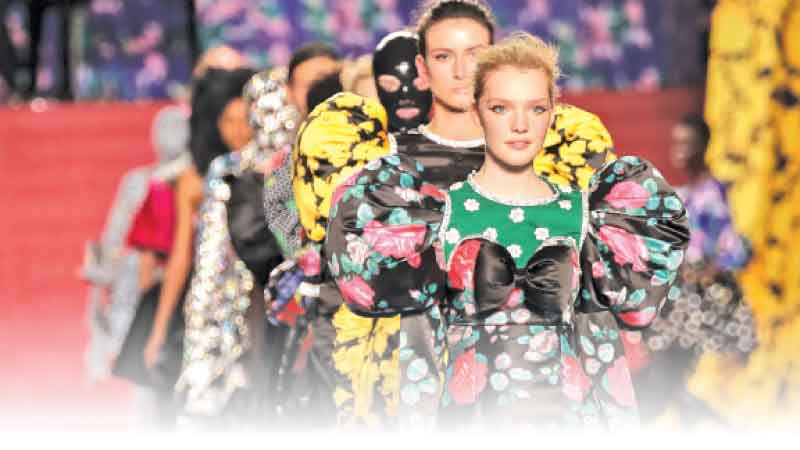At London fashion week, all eyes are on what the shows look like, not what the clothes look like.
London is the first of the four major fashion capitals to stage a fully digital fashion week. The schedule, which began on Friday and ran until Sunday, featured no catwalk shows, no cocktail parties and definitely no air-kissing.
With the traditional format a no-go under physical distancing rules, shows have been replaced with films, virtual showrooms, podcasts, playlists, live-streamed panel discussions and even a drop-in virtual afterparty. The invitation-only elitist traditions have been ditched in favour of digital content accessible to all.
This season’s muse? Netflix. London’s new-look fashion week is closer to a pop-up streaming service for fashion than it is to the shows that were staged in front of packed benches at a Thames-side venue just four months ago.
 The opening event was headlined not by a designer, but by a poet. A two-minute reading of a new piece by James Massiah, who describes his work as “party poetry”, was filmed at his home in south London. It began: “Looking forward to a lot of things when this whole thing is done.” No clothes featured in this “show”, except for Massiah’s black T-shirt – instead, there were namechecks for London fashion designers including Bianca Saunders, Mowalola and Asai, plus a rhyme of “Prada shoes” with “face masks on the tube”.
The opening event was headlined not by a designer, but by a poet. A two-minute reading of a new piece by James Massiah, who describes his work as “party poetry”, was filmed at his home in south London. It began: “Looking forward to a lot of things when this whole thing is done.” No clothes featured in this “show”, except for Massiah’s black T-shirt – instead, there were namechecks for London fashion designers including Bianca Saunders, Mowalola and Asai, plus a rhyme of “Prada shoes” with “face masks on the tube”.
An allusion to flinging “statues in the sea” referenced the anti-racism protests of the past two weeks. “In the wake of George Floyd’s death, we are reminded that there is still racial prejudice and discrimination, which we must and will tackle in the fashion industry,” said the British Fashion Council’s Caroline Rush in an opening address, delivered by video. Alongside an ongoing commitment to reducing its environmental impact, London fashion week “must now double our efforts to take on racism in all its forms,” she said.
The stakes are high for British fashion, because London’s prestige in the industry owes much to its reputation for flamboyant clothes and must-see catwalk theatrics. When Shanghai became the first fashion week to pivot to an entirely digital format in response to the pandemic, the event three months ago was hailed as a commercial success, drawing 11 million viewers and selling £2.2m of merchandise direct to consumers during live streams.
But the virtual fashion show is still waiting for its first breakout hit, with even the biggest names struggling to translate their catwalk star power into a winning digital formula.
The Guardian



Add new comment